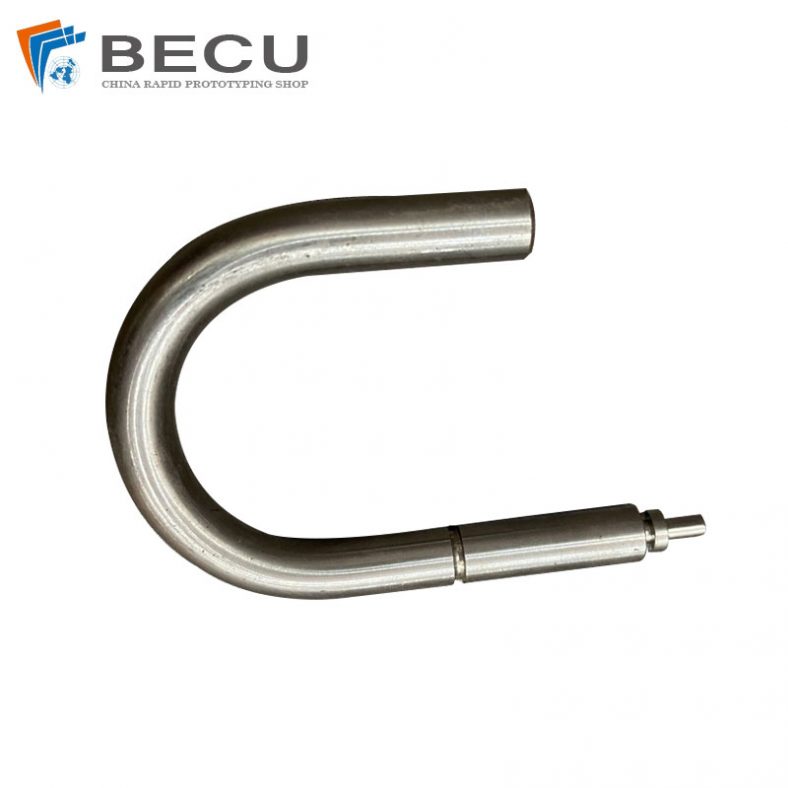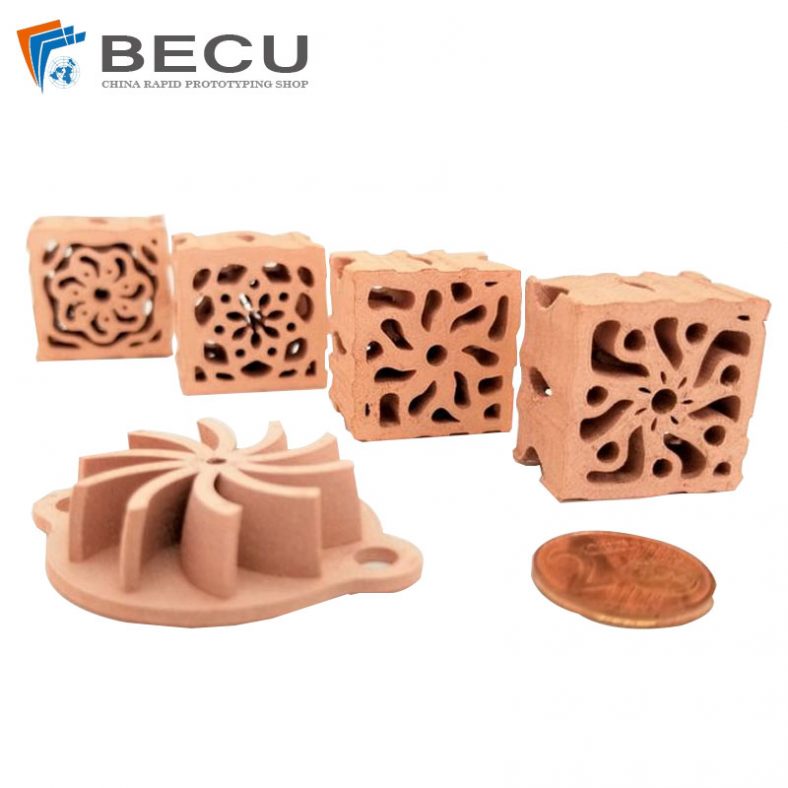
In the realm of modern dentistry, dental implants have revolutionized the way we address tooth loss and its impact on overall quality of life. Dental implants are titanium posts that are surgically placed into the jawbone to replace the root of a missing tooth. This cutting-edge solution offers numerous advantages over traditional dentures and bridges, providing a long-lasting, natural-looking, and stable alternative for restoring smiles and oral functionality. Beyond the restoration of teeth, dental implants play a transformative role in enhancing oral health, preserving jawbone integrity, and positively influencing emotional well-being.This in-depth article will explore the multifaceted benefits of dental implants, ranging from their physiological impact on oral health and nutrition to the profound psychological effects they have on self-confidence and social interactions.
As we delve into the science, procedures, and real-life experiences of patients, the undeniable significance of dental implants in improving the quality of life for millions of individuals worldwide becomes evident.
Understanding Dental Implants: A Comprehensive Overview
Historical Background and Evolution
The history of dental implants dates back to ancient civilizations, with evidence of primitive forms of dental prosthetics found in various cultures. However, it was in the 1950s when Swedish orthopedic surgeon Per-Ingvar Brånemark made the groundbreaking discovery of osseointegration—the biological fusion of titanium with living bone tissue. This discovery laid the foundation for modern dental implants and revolutionized the field of restorative dentistry.
Anatomy of a Dental Implant
A dental implant consists of three essential components: the implant itself, the abutment, and the prosthetic crown. The implant is the titanium post that is surgically placed into the jawbone. The abutment connects the implant to the crown, which serves as the visible, functional part of the replacement tooth.
Types of Dental Implants
Dental implants come in various types, each designed to cater to specific patient needs and anatomical considerations. The type of dental implant used depends on factors such as the patient’s jawbone density, the number of missing teeth, and the overall oral health. Let’s explore the most common types of dental implants:
- Endosteal Implants: Endosteal implants are the most common type of dental implant. These implants are shaped like small screws and are made of biocompatible materials such as titanium. Endosteal implants are surgically placed directly into the jawbone, where they fuse with the bone through osseointegration. Once fully integrated, an abutment is attached to the implant, which serves as the connector for the prosthetic crown, bridge, or denture.
- Subperiosteal Implants: Subperiosteal implants are an alternative to endosteal implants for patients who have insufficient jawbone density or cannot undergo bone augmentation procedures. Instead of being placed into the jawbone, subperiosteal implants are positioned on top of the jawbone but beneath the gum tissue. The implant framework is custom-made and rests on the jawbone, with posts extending through the gums to support the prosthetic teeth.
- Zygomatic Implants: Zygomatic implants are specialized implants used in cases where patients have severe bone loss in the upper jaw. Instead of being anchored in the jawbone, zygomatic implants are inserted into the zygomatic (cheek) bone. This approach allows for sufficient stability and support for the dental prosthesis, bypassing the need for bone grafting.
- Mini Dental Implants (MDIs): Mini dental implants, also known as MDIs or narrow-diameter implants, are smaller in diameter compared to traditional dental implants. These implants are often used when there is limited space or bone volume. Mini implants are a less invasive option and can be suitable for stabilizing dentures, supporting small dental bridges, or replacing single missing teeth.
- All-on-4 Implants: The All-on-4 technique is a specialized approach that allows for the placement of a complete set of teeth using only four dental implants. This method is particularly useful for patients with extensive tooth loss or compromised jawbone density. The strategic placement of the implants ensures optimal support for a full fixed dental prosthesis, such as an implant-supported denture.
- Immediate Load Implants: Immediate load implants, also known as “same-day implants” or “teeth-in-a-day,” enable patients to receive a temporary dental prosthesis immediately after implant placement. Traditional dental implants require a healing period of several months before attaching the final restoration. However, immediate load implants are designed to provide functional teeth on the same day as the surgery, enhancing patient convenience and aesthetics.
- Blade Implants: Blade implants are an older type of dental implant that resembles a flat metal plate. These implants are placed into the jawbone, and the surrounding bone grows around the flat surface, providing stability. Blade implants have become less common in modern dentistry due to advances in implant technology, such as the more reliable endosteal implants.
The choice of dental implant type depends on the patient’s specific oral health needs, the condition of the jawbone, and the expertise of the dental implantologist. It is crucial for patients to undergo a thorough evaluation and consultation with a qualified dental professional to determine the most suitable implant type for their individual case.
The Science of Osseointegration
Osseointegration is the key to the success of dental implants. The titanium material used in implants has a unique ability to fuse with the living bone tissue, creating a stable and durable foundation for the replacement tooth. This process ensures the implant’s stability and longevity, allowing it to function just like a natural tooth root.
The Advantages of Dental Implants: Transforming Oral Health
Restoring Oral Functionality and Chewing Efficiency
One of the primary advantages of dental implants is the restoration of normal oral function. Unlike removable dentures that may slip or cause discomfort, dental implants provide a permanent and stable solution for chewing and speaking, offering a natural experience similar to that of natural teeth.
Maintaining Jawbone Health and Structure
When a tooth is lost, the underlying jawbone begins to deteriorate due to the lack of stimulation. Dental implants act as artificial tooth roots, stimulating the jawbone and preventing bone loss. This helps maintain the facial structure, preventing premature aging and maintaining a youthful facial contour.
Durability and Longevity
Dental implants are designed to last for decades with proper care and maintenance. Unlike traditional bridges or dentures, which may require frequent replacements, dental implants provide a durable, long-term solution, making them a cost-effective investment in oral health.
Enhanced Oral Health
Dental implants offer more than just a cosmetic solution. They contribute to improved oral health by preventing issues such as shifting teeth, malocclusion, and gum problems that can arise when teeth are missing. By restoring a complete set of teeth, dental implants help maintain proper oral hygiene and reduce the risk of periodontal disease.
Preventing Adjacent Teeth Complications
Traditional dental bridges often require the grinding down of adjacent healthy teeth for support. Dental implants, on the other hand, eliminate the need to alter neighboring teeth, preserving their natural structure and integrity.
Psychological Impact of Dental Implants
Improved Self-Confidence and Self-Esteem
Tooth loss can significantly impact a person’s self-confidence and self-esteem. Individuals with missing teeth may feel self-conscious about their appearance, leading to social withdrawal and anxiety. Dental implants offer a transformative solution by restoring a natural-looking smile, helping patients regain their self-confidence and sense of self-worth.
Social and Professional Advantages
A beautiful smile plays a vital role in social interactions and professional encounters. Dental implants enable individuals to confidently engage in conversations, job interviews, and social gatherings without worrying about their appearance or denture-related problems.
Psychological Well-being and Happiness
Studies have shown a strong link between oral health and psychological well-being. Dental implants contribute to improved mental health, reducing feelings of embarrassment and enhancing overall happiness in individuals who have undergone the procedure.
Dental Implants and Quality of Life Beyond Oral Health
Enhanced Nutrition and Dietary Choices
Missing teeth or ill-fitting dentures can limit a person’s ability to chew certain foods, potentially leading to nutritional deficiencies. Dental implants restore full chewing functionality, allowing individuals to enjoy a diverse and nutritious diet, contributing to better overall health.
Improved Speech Clarity
Missing teeth can affect speech, causing pronunciation difficulties and speech impediments. Dental implants provide stable support for replacement teeth, helping individuals regain clear and precise speech.
Long-term Cost-Effectiveness
While dental implants may initially seem more expensive than traditional dental restorations, they offer long-term cost-effectiveness. Unlike bridges and dentures, which may require frequent repairs and replacements, dental implants are a long-lasting solution, saving patients money over time.
Longevity and Success Rates
Dental implants have an impressively high success rate, with studies indicating success rates of up to 98%. This success, coupled with the longevity of dental implants, makes them an excellent investment in oral health and overall quality of life.
The Dental Implant Procedure: From Consultation to Recovery
Comprehensive Dental Evaluation
Before undergoing dental implant surgery, patients undergo a thorough dental evaluation, which includes X-rays, 3D imaging, and a comprehensive oral examination. This evaluation helps determine the patient’s suitability for the procedure and allows the dental team to create a customized treatment plan.
The Surgical Procedure
Dental implant surgery is typically performed in multiple stages. First, the implant is surgically placed into the jawbone beneath the gum line. The gum is then sutured, and the healing process begins. After a period of osseointegration, during which the implant fuses with the jawbone, an abutment is attached to the implant to connect the artificial tooth.
Restorative Phase
After the implant has integrated with the jawbone, the restorative phase begins. A custom-made crown, bridge, or denture is then attached to the abutment, providing a natural-looking and functional replacement tooth.
Aftercare and Maintenance
Proper aftercare is crucial to the success of dental implants. Patients must maintain excellent oral hygiene, including regular brushing, flossing, and dental check-ups. Additionally, avoiding harmful habits like smoking can further promote the longevity of dental implants.
Factors Influencing Candidacy for Dental Implants
Overall Health and Medical History
A comprehensive medical evaluation is essential before considering dental implant surgery. Factors such as chronic diseases, immune system disorders, and uncontrolled diabetes may affect the success of the procedure.
Sufficient Jawbone Density
To support the dental implant, an adequate amount of jawbone is required. In cases where there is insufficient bone density, bone grafting procedures may be necessary to prepare the jawbone for implant placement.
Gum Health
Healthy gums are crucial for the success of dental implants. Gum disease must be treated and controlled before proceeding with the implant procedure.
Lifestyle Factors
Certain lifestyle habits, such as smoking, heavy alcohol consumption, or teeth grinding, can negatively impact the success of dental implants. It is essential for patients to adopt a healthy lifestyle to ensure the long-term success of their dental implants.
Case Studies: Transformative Experiences with Dental Implants
Patient 1: Restoring the Smile of a Young Professional
Case Study 1 explores the journey of a young professional who lost several front teeth due to a sports injury. Dental implants not only restored his smile but also played a vital role in boosting his self-confidence and career prospects.
Patient 2: Regaining Dental Functionality and Nutrition for an Elderly Patient
Case Study 2 focuses on an elderly patient who struggled with ill-fitting dentures, affecting her ability to chew and enjoy a varied diet. Dental implants not only improved her dental function but also significantly enhanced her quality of life and overall well-being.
Exploring New Advancements in Dental Implant Technology
Digital Dentistry and 3D Printing
Advancements in digital dentistry and Medical 3D printing have revolutionized the dental implant procedure. These technologies allow for precise planning and the creation of customized dental implants, resulting in improved outcomes and reduced treatment times.
Immediate Load Implants
Immediate load implants, also known as “same-day implants,” allow for the placement of a temporary crown or denture on the same day as the implant surgery. This offers patients the advantage of leaving the dental office with a functional smile immediately after the procedure.
Mini Dental Implants
Mini dental implants are a smaller version of traditional implants, offering a less invasive and more affordable option for certain cases. They can be used to stabilize dentures or support single crowns, providing an effective solution for patients with limited bone volume.
Addressing Common Concerns and Myths About Dental Implants
Pain and Discomfort
Contrary to popular belief, dental implant surgery is generally well-tolerated and relatively pain-free. Local anesthesia is used during the procedure to ensure patient comfort.
Affordability
While dental implants may have a higher initial cost compared to traditional restorations, their long-term durability and positive impact on overall health make them a cost-effective investment.
Recovery Time
Recovery time varies from patient to patient, but most individuals can resume regular activities within a few days to a week after the procedure.
The Future of Dental Implants: Innovations and Possibilities
Advancements in Materials and Design
As technology continues to advance, dental implant materials and design are likely to undergo further improvements. New materials with enhanced biocompatibility and strength may emerge, offering even better outcomes for patients.
Nanotechnology in Dentistry
Nanotechnology holds immense promise in the field of dentistry, including dental implants. By utilizing nanomaterials, researchers aim to improve osseointegration, reduce healing times, and enhance the overall success of dental implants.
Personalized Implant Solutions
Advancements in digital dentistry and artificial intelligence may lead to fully personalized dental implant solutions. Custom-made implants, tailored to individual patients’ needs, may become more accessible in the future.
Conclusion: The Life-Changing Benefits of Dental Implants
Dental implants have undoubtedly transformed the field of restorative dentistry, offering a comprehensive solution that extends beyond the restoration of a beautiful smile. By enhancing oral health, promoting psychological well-being, and significantly improving overall quality of life, dental implants have positively impacted millions of lives around the world. As technology and research continue to progress, dental implants will undoubtedly continue to evolve, promising an even brighter future for those seeking to restore their smiles and transform their lives through this remarkable dental innovation.
In conclusion, dental implants are much more than mere dental restorations. They are life-changing solutions that offer individuals the opportunity to regain confidence, enjoy a healthier lifestyle, and experience a transformation that goes beyond their smiles. The impact of dental implants on overall quality of life is immeasurable, making them a truly remarkable advancement in the field of dentistry. As technology continues to advance, we can expect dental implants to become even more accessible, efficient, and life-transforming for patients seeking to improve their oral health and well-being. With dental implants offering lasting and significant benefits, it is no wonder they have become the gold standard for replacing missing teeth, enabling people to smile with newfound confidence and embrace life to the fullest.
Swiss Precision Machining,Sheet Metal Fabrication and 3D Printing For Dental Projects
Our company got its start in dental manufacturing more than 20 years ago. Today, we manufacture the latest precision machined dental implants and abutments. Our quality control process for medical CNC machining and other process is second to none. When you partner with Be-Cu for your dental products, you have the assurance that they will be manufactured perfectly the first time. We accomplish this with:
- Technologically advanced, state-of-the-art equipment
- Experienced engineers and machinists
- Rigorous quality control
- ISO 9001:2015 certification
- Painstaking precision
We’re proud to have a part in manufacturing the dental implants and abutments that allow patients to regain full oral health. Email us(via [email protected]) today to talk about your dental machining and 3d prtinting project.
-

5 Axis CNC Machining Medical Olecranon Plate
-

Black Nylon Medical Threaded Screw By MJF 3D Printing
-

MJF 3D Printing Black Nylon Red Dot Sighting For Medical
-

Automatic Swiss Turning Stainless Steel 316L U-bolt
-

Laser Cut Nitinol Stent For Bile Duct
-

Stents For Carrying Valves And Venous Valve Replacement Devices
-

Micro CNC Machining Kovar 4J29 Medical Implant
-

FFF Fused Wire Extrusion 3D Printed Pure Copper Parts
